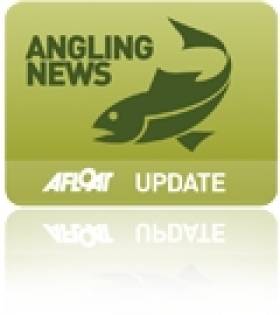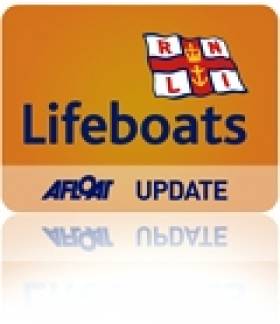Displaying items by tag: voluntary
NI Taxpayers Could Foot the Bill for Fines Over Dwindling Salmon Stocks
#ANGLING - Northern Ireland's taxpayers could be left with a bill for millions in EU fines if action isn't taken to reverse the decline of salmon stocks, the News Letter reports.
Ulster Unionist MLA Robin Swann said he believes that voluntary measures to help protect the North's Altantic salmon will not remove the threat of "fines which would likely run into millions which [the people of NI] will end up paying".
As previously reported on Afloat.ie, NI's Fisheries Minister Carál Ní Chuilín called on offshore anglers and commercial fishermen to forego applying for 2012 salmon licences.
Annual monitoring of the North's salmon rivers has shown a failure to reach targets most years since 2002, with the survival rate of salmon in the marine phases in some cases dropping to as little as 5%.
Coastal drift nets and bag nets off the north Antrim coast - which contravene EU directives - have been blamed for intercepting salmon stocks before they reach the rivers, and anglers and conservation groups have already called for a ban.
But Swann says that Department of Culture, Arts and Leisure (DCAL) does not yet have the legislative power to stop them.
The News Letter has more on the story HERE.
Howth Lifeboat Rescues Three Vessels
The Inshore Lifeboat (ILB) was just returning to the safety of the harbour with two motorboats in tow, when the larger All Weather Lifeboat (ALB) was requested to the aid of a fishing trawler that had also experienced technical failure.
The second motorboat under tow by the voluntary ILB crew suffered engine failure whilst attempting to assist the first stricken craft. They had just reached the harbour mouth when the alarm was raised by a fishing trawler in similar circumstances.
The voluntary crew then transferred to the ALB and went to the rescue of the fishermen. All vessels were towed safely back to Howth harbour.
Patrick Brown, voluntary crewmember for Howth RNLI said:
"Luckily weather conditions were fair this evening, allowing for a speedy recovery of the boats that were in difficulty. However the light was fading at the time of the incidents, highlighting the importance of having safety flares for both commercial and pleasure craft alike. Charitable donations from the public make it possible for the RNLI to continue rescuing those in danger at sea"
Related Safety posts
RNLI Lifeboats in Ireland
Safety News
Rescue News from RNLI Lifeboats in Ireland
Coast Guard News from Ireland
Water Safety News from Ireland
Marine Casualty Investigation Board News
Marine Warnings






























































